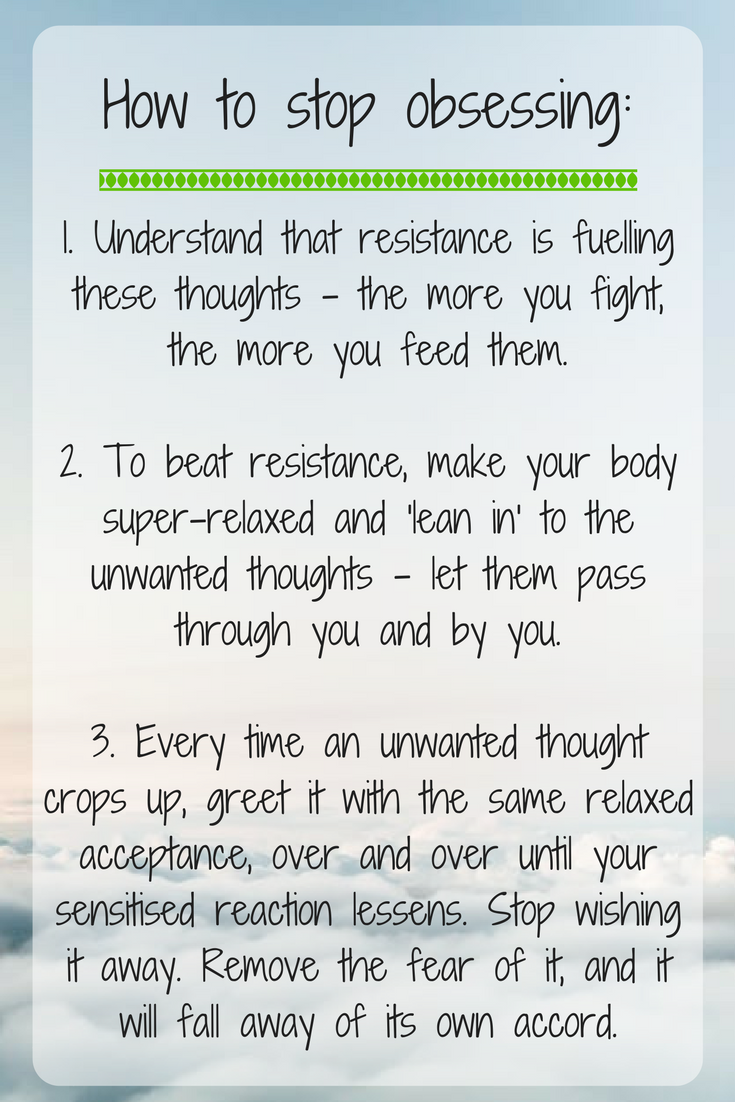OCD and COVID-19... Oh, My!!!
OCD and COVID-19: The onslaught of COVID-19 has debilitated the world in countless ways. Economies are teetering on the brink of free fall, children are living in a world where death can no longer be explained away as a boogeyman, grocery shelves are empty, people are isolated, and surgical masks are worn as regularly as shirts and shoes.
OCD and COVID-19:
|
I consider myself to be extremely fortunate to have a supportive wife who “gets me.” Yes, her name is Melissa Stefanski – the founder of Know-Stress-Zone and Insight Hypnotherapy. I am also grateful for having reached a point of effectively managing my OCD. Yes, it is possible.
I just want to reach out to others who are part of the OCD crew. You are not alone. THERE IS HOPE.
Here’s what we can do: Follow the basic guidelines recommended by CDC>>>
Having said that, I think it’s important to ask yourself the following question whenever you feel a compulsion is imminent: Am I following CDC guidelines or OCD guidelines?
Yes, unfortunately, we still have a condition that requires our daily management. And manage we shall!
Let’s get through this! ~ Ted Stefanski
OCD and COVID-19
How to Stop Obsessive Thoughts
Obsessive thoughts are useless and counter productive - you end up being sucked into this vortex where time is wasted, your stress level elevates and your fatigue increases.
This stress and fatigue will only do one thing - feed your obsessive thoughts! it's a terrible snowball effect. I've had moments in my life where I thought myself into a full body ache! When you engage in obsessive thinking, you are living in the future and missing all that is happening around you.
There were times when I was so caught up worrying about things, I didn't remember a bus ride home from the city - imagine that!
The process for me typically began with a negative thought about a future event (aka: anticipatory anxiety). The joke was on me because I learned that the actual event was never as bad as the anticipation of that particular event (add this knowledge to your arsenal). Now, when I catch myself having obsessive thoughts about a future event, I remind myself that this is the worst of it, and the actual event will not be as bad as thinking about it.
Guess what? It works - I put this into practice for my best friend's wedding.
In April, my best friend asked me to be his best man at his wedding in September. Though honored at the request, I began to have obsessive thoughts about having to speak in front of a large group of guests - Oh @#*%! After a few days of worrying, I reminded myself of something I learned as a businessman: You don't win by playing defense. I began to focus my worry energy into an action plan. I stopped making it about me and focused on my friend who wanted and needed me to assume this role. I literally turned my obsessive thoughts into a creatively written account of my life experiences with my friend. The final work was read to the wedding guests and they truly enjoyed it!
In order to address a problem, one must first recognize the problem. How often are you worrying about the problem or event? If it's a worry or fear which dominates your day, it's an obsessive thought. I found that my obsessive thoughts were not justified. I began to ask myself: When was the last time a worry or fear came to fruition? I ask you to do the same.
Imagine an obsessive thought as a boxing opponent. For every obsessive thought, block that punch and counter with a positive response. The response can be in the form of a positive thought or action such as exercise or writing. This can be controlled ifyou are willing to play offense. You are in control!
I wish you much success as we walk the path to peace of mind.
OCD and COVID-19
How to Stop Obsessive Thoughts
|
Are you tormented by the pressures of obsessive compulsive disorder? Do you have to run your life around seemingly pointless repetitive rituals and behaviors in order to get any peace of mind? People who have never experienced obsessive compulsive disorder find it very hard to understand - or accept. They can't understand why you can't just not count to a hundred, wash your hands for the fortieth time, open and shut the door in precisely that way - or whatever your compulsion is. The trouble is - you can't understand it either. You only know that the feeling that you've got to do it is overwhelmingly powerful. |
How to stop obsessive thoughts: Getting OCD treatment
If OCD has taken over you life completely and is causing you significant problems and distress, you should seek professional help. But there are also steps you can take yourself, alongside such help. The main thing is to understand that it's not so important to know why you have these compulsions as to understand what is happening when you feel them, and how to deal with it.
The basics of obsessive compulsive disorder
Typically OCD involves experiencing obtrusive incessant worrying thoughts about something, and then developing behaviors that are an attempt to eliminate those thoughts. The thoughts may have a rational basis (did I lock the door?), or be nothing to do with the real world (the misalignment of my shoes means that I am in danger). Whether they are rational or irrational, they induce high levels of anxiety.
You already know that rational explanations do not help. You know (for example) that the position of shoes on the floor has no inherent meaning. But the feeling of danger is more powerful than this knowledge, and so you meticulously place them in exactly the right orientation to relieve that feeling, at least temporarily.
So essentially what is happening is that a strong negative arousal (anxiety, guilt, worry) has become associated with a certain trigger. When you are in the "trigger" situation, you automatically experience the arousal. Rationality and choice do not come into it. It's as if your brain has been "programmed" to react like this.
How to stop obsessive thoughts: Using hypnosis and brainwave entrainment for OCD
The good news is that brain programming can be changed. It is possible to reprogram your brain to feel quite calm and relaxed in the situation that used to set your alarm bells ringing. In other words, you can 'disassociate' that trigger from that automatic reaction, and replace it with a new, calm and detached response.
Hypnosis and brainwave entrainment are the most powerful toosl we know for carrying out safe and gentle brain programming.
When you calm down your limbic system using hypnosis and/or brainwave entrainment you'll find yourself:
- relaxing more quickly and more deeply each time
- able to relax more in many different situations
- learning powerful techniques that not only beat the OCD but help you in so many other areas of your life
- becoming more and more detached from worrying thoughts
- hardly even noticing triggers any more ~parts adapted for OCD and COVID-19 via HypnosisDownloads.com (how to stop obsessive thoughts)
OCD and COVID-19
|


